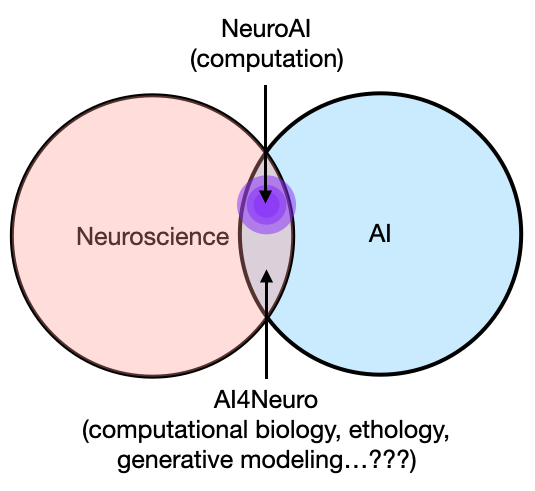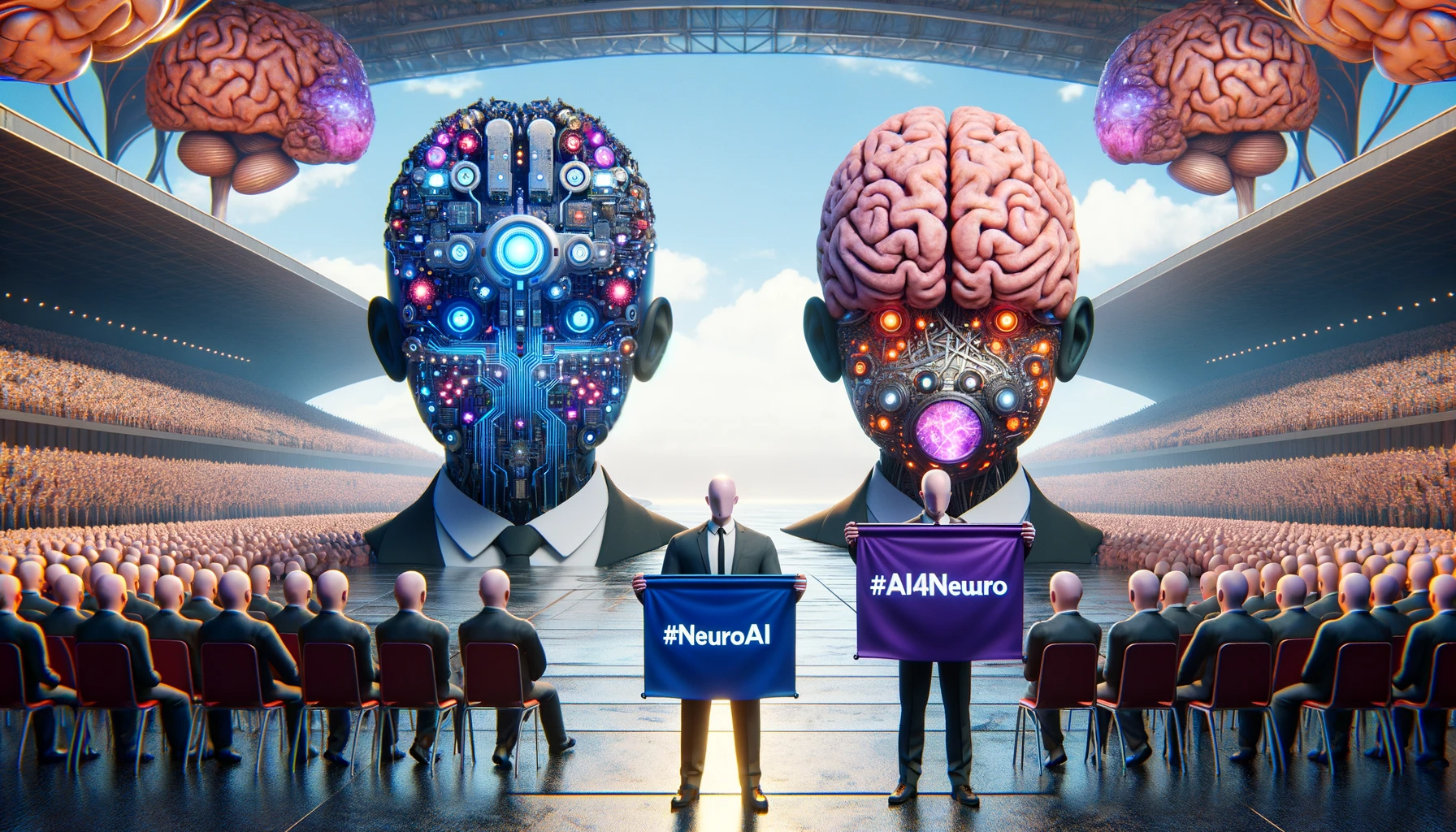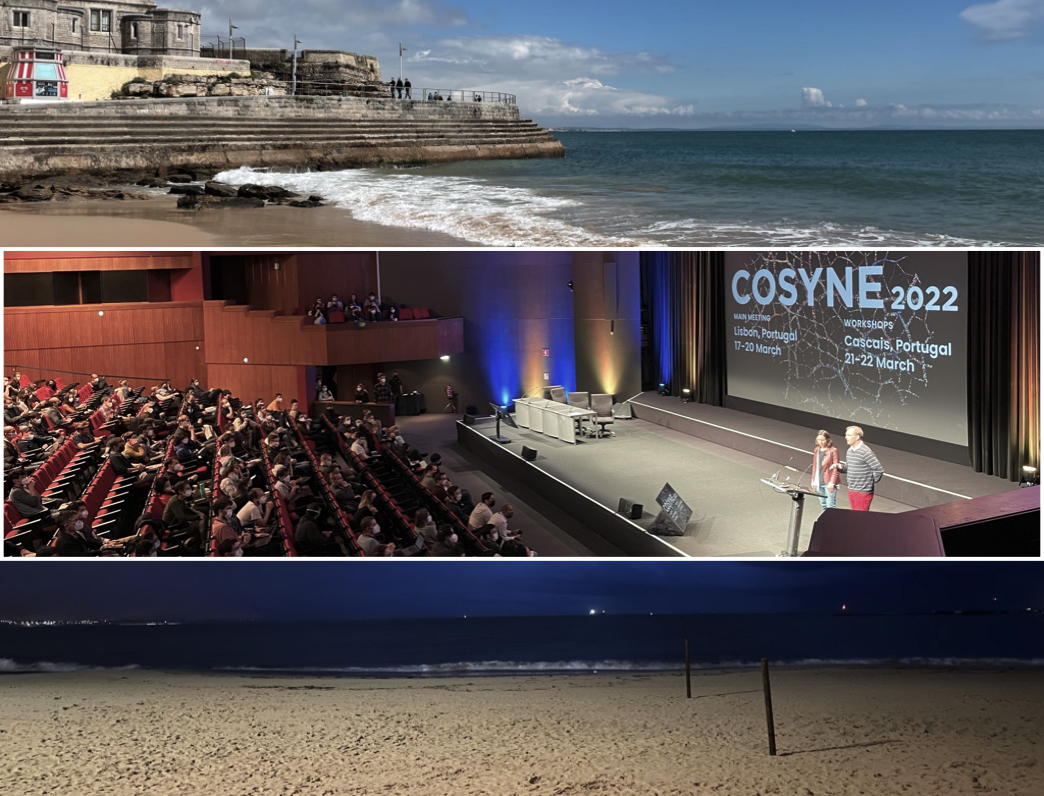I went to another talk in the Kavli Institute for Brain and Mind (KIBM) seminar series at UCSD last night (Nicola Allen). The title of her talk was “Astrocyte Regulation of Synapse Formation in the Brain”, or something to that effect. The talk, as interesting and amazing as it was, is not the purpose of today’s writing, though I will take two paragraph to summarize it because it serves as the basis for the point I want to make. If neuroscience turns you off, I urge you to keep reading because you’re my intended audience, the sun always shines after the storm, and that this isn’t really about neuroscience.
We typically think of the brain as consisting of two families of cells, neurons and neuroglias (or simply glias). Neurons are the tiny buggers that communicate to each other through firing of action potentials across synapses, which are connections between neurons, kind of like a stream of 0’s and 1’s going between the wires in your computer right now. Neurons make you think, perceive, and form just about anything that is “you”. Glials, on the other hand, were thought of padding, its name literally comes from the word GLUE in Latin. Naturally, then, neuroscience has been devoting most of its manpower to the study of neurons, because studying glials would be like studying the shell of your laptop in trying to determine how your computer computes - not that they’re not important, since they have a variety of functions like keeping your neurons alive and, well, comfortably padded, but they just aren’t the things that make you tick.
With me so far? This is where it goes downhill, fast, and it’s where the talk begins. Astrocytes, a subtype of glia, are apparently more important than we thought: if you grow neurons in a dish without astrocytes, they won’t form synapses, which essentially means that they are deaf and dumb, and can’t do any meaningful calculations. This implies that not only do astrocytes support the functioning of neurons, they also directly impact their growth. Nicola Allen’s lab, then, is interested in how exactly do astrocytes regulate this important aspect of neural development. The (very, very, very) brief version of the story is: they isolated the chemical soup astrocytes secrete, dumped it on the neurons to see if they end up growing correctly (they do). Then, from the thousands of proteins present, they isolated ~25 suspects, tested their effect (positive again), and then again isolated it to a single candidate, called glypican4, that was primarily responsible for the effect observed in in-vitro neuron development. Well, I described in one sentence what was probably two years of lab work and countless formulations of ingenious methodologies, but the story doesn’t end. Apparently, glypican4 isn’t wholly responsible for the formation of synapses, they just induced the surfacing of GluA1 receptors (they’re like the receivers of data packets) in postsynaptic neurons, which then triggers some downstream effects in the neurons themselves to form the physical synapse, which they had no explanation for. Worse yet, if you reproduce this effect in-vivo through knockout of the glypican4 gene in a baby mouse, the mouse brain is first screwed up because, as we expected, there are a lack of synapses in development. But after about 3 weeks, the brain compensates and completely fixes itself…. And I think this is where I’ll stop.
If I haven’t lost you here, I’d like to talk to you, because you probably know a lot more about things than I do. But here is what seems to be the take away: they’ve isolated this one little protein molecule that is probably one link in the chain of neural development out of hundreds, and they’ve actually proven that the brain doesn’t even need it. This little obscure fact, along with the painstaking methodology, will probably end up on a page in an entry level neuroscience textbook someday, where an unfortunate undergraduate soul is going to have to spend 20 minutes reading and memorizing for his class. If I was such an unfortunate soul, I would have said: “Fuck this thing. Why does anyone even care? They didn’t even find a good answer, why do I need to know this?” I know, because I, like countless of my comrades, were such an unfortunate soul, throughout highschool, undergrad, all the way until my salvation on Commencement. That pretty much summed up my attitude towards basic sciences, especially biology, where 99% of the times, people seem to find one irrelevant molecule after another that contributes to a total sum of zero increase in understanding of science or improvement in the quality of life. How many no-name molecule is published for every insulin and penicilin? And why are all of them compiled in this cellular mechanism diagram that I need to memorize? A better question: why am I in graduate school?
After that little (okay, long) rant, you’d think that it was the biggest waste of two hours in my life, hearing about the trials and tribulations of discovering this little molecule, on top of the fact that my knowledge in basic biology was stretched so thin that it was like I was trying to keep up with the same seminar in Russian.
But it wasn’t. I held on for my dear life during the two hours, but it wasn’t the endless stream of “interesting” facts that kept me awake at 7pm on a full weekday, it was my own stream of questions that had me going, hoping that I would get some answers, question after question. But more often than not, there would be no answers, or worse, an answer that lead to even more questions. In the end, it piqued my interest so much that I went home and found the very papers that I thought I hated, detailing the discovery of one no-name molecule after another, just so I can find out more. And that change of attitude, I think, is the key that can take our science to the next level. I know, because I was once a non-believer.
Seriously though, yes I was interested in neuroscience in the first place, and I think some entry level curiosity and knowledge are prerequisites, but to be honest, even if you didn’t know a thing about the context of the talk, there are definitely things that can make you wonder, logistic things, purely along the lines of “if you did this, why didn’t you do that?” Or, “what if you did this instead?” I publicly embarrassed myself within 5 minutes of sitting down, during the first few slide of the talk. The slide was showing two plates of neurons, one with astrocytes, one without, and she was beginning to explain the effect of the lack of astrocytes. With profound speed, I managed to raise my hand and ask: “but what happens when there are no neurons?” To which I immediately realized, then there would be an empty plate. But my stupid question was rooted by a deeper, less stupid question, which was what effects do the neurons have on the astrocytes? Which she thankfully realized, and gave some answers later on in the talk. The point of that anecdote is to say that, you don’t need to be a neuroscientist to ask neuroscience questions.
Many people- more eloquent people- have written about the fact that science, as we know, is a never-ending process, and not something with “answers”. But I’m still going to write my two cents. A lot of my friends were blessed with the intelligence and audacity to realize that fact earlier on in their lives, but I wasn’t. I took high school physics and chemistry like it was the effing Holy Bible. “Surely we have the atomic model down pat by now, after 2000 years. Right? Right?” Imagine my surprise when I took quantum mechanics, an area which by definition has little certainty in anything, but it still somehow managed to overthrow the planetary model of electrons orbiting around the nucleus. I’m telling you, I literally thought there were electrons circling the protons and neutrons in perfect spherical trajectories.
Now one might think that this is my personal lament with the way I was taught science, and to a point, it is. But I’m confident to say that I wasn’t the only one with this experience, because I’ve seen many curious people turn away from science, drowning in the sea of seemingly meaningless facts. In fact, every single kid between the age of 3 and 10 I’ve known had tremendous ability to ask questions about the world around them. Fun fact, every time I go to a museum or aquarium or some kind of science exhibit, there seems to be a school trip, and it always amazes me to hear the kind of questions these kids ask. And it’s not like they’re always gifted classes. I remember this one incident very clearly: I was in Chicago and decided to drop by the aquarium, and there was a field trip for inner-city school kids, I swear I saw some of the gnarliest 10-year-old’s ever. But as soon as they saw the fish and the turtles and the frogs, all they had was questions. It was so strange to me that a kid with his pants halfway down his knees was filling out one of those lame-ass question sheets we get every time we go on a field trip, and asking the animal handlers for the answers! Anyway, that’s my feel-good story, and I’ve always maintained that kids all have the ability to be very very smart, just due to the sheer amount of curiosity they have. But somewhere down the line, we become less curious. Maybe because we get busy, but let’s be real, despite what you thought as a 12-year-old, you were not busy. I think, it’s because school is fucking boring.
Not that the other subjects are any better, but let’s just focus on science for now. We all know how science class goes. “Alright class, today we’re gonna cover the X model of Y, and you’ll need to know ABC for this unit’s test.” It’s just appalling that we’re taking the most exciting part of science - the narratives, the struggles and triumphs, and the uncertainty- OUT of science. You might think that the narratives have no place in relation to disseminating the knowledge we gathered, but I argue that if it’s the only thing that can keep students engaged and awake, then we better make some damn place for it. It’s like saying, if someone was to ask me what the last book of Harry Potter was about, then I should literally read to them the sentence I’m currently on, with no context of the past nor expectation of the future.
Anyway, I don’t have an answer for this. I’m not sure if the responsibility falls upon the students, the educators, or even scientists - probably a little bit of everyone. But I’m glad the student-based learning thing is catching on now, especially in some higher-level institutions. And I don’t think it’s perfect the way it is, but nobody said it was. The tl:dr?
1. We should encourage students to ask questions about science, just like how scientists ask questions about science. Not just questions in the sense of “I don’t understand this”, but more “why is this the way it is?”, or better yet, the dreaded “why are we studying this?” I swear, half the time scientists don’t even give shit about the particular thing that they are studying, in the sense that what matters more is having their curiosity satisfied, and not a particular contribution. Obviously people care about the things they’re investigating, at least in the grand scheme of things, but sometimes, when the going gets tough, the little wins matter more.
2. We should tell the stories of science - how it got here and where it’s going - and not just the conclusions. Because first, there aren’t conclusions, even the things we learn in high school science are still being turned over. And two, because people like narratives much more than isolated facts. Obviously this requires in-depth background knowledge of the particular subject, and science teachers, bless their hearts, may not always have the prerequisites. Worse yet, you don’t need to love science, or even be good at it, to teach it. I was pretty lucky in having some teachers in high school that actually thought science was cool, which is always a great start, but not every kid gets that either.
So, my friends, if you’re on the way to becoming a science teacher, or even a professor, please, think of Harry Potter and how sad you would be if that story had no narrative or cliffhangers.




